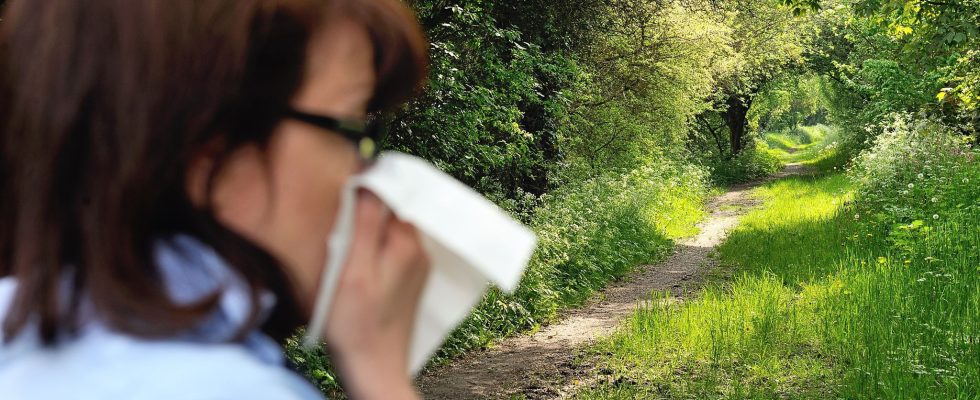The pollen alert is given in France. In his last newsletter, published Friday, May 26, the National Aerobiological Surveillance Network (RNSA), warns that the whole of France is hit by a wave of grass pollen this Pentecost weekend. What are grasses? These are herbaceous plants that border roads, fields, certain roundabouts and parks. From May to June, this is the time when grass vegetation is the most important. What bother people allergic to pollen from trees or grasses which represent 20% of the population in France.
In total, 90 departments are placed on red alert for grass pollen, when the other six, all located in the west of the country, are on yellow alert, indicating a “medium” risk of grass allergy. Finistère, Morbihan, Ille-et-Vilaine, Mayenne, Sarthe and Orne are relatively spared. For its part, the Paris region, particularly affected for almost a week, will continue to be this Monday. The risk of allergy for grasses will remain at a high level for several weeks throughout France, except in Brittany where it will be at an average level.
The reason: the arrival of sunny days. “The beautiful weather conditions announced with mild spring weather north of the Loire and summer weather in the south will promote the emission and dispersion of grass pollen in the air”, explains the RNSA on Twitter. Also beware of pollution peaks in the city which can become aggravating factors for allergy symptoms. It should be noted that global warming leads to earlier pollination and the latter increases. Only rare stormy rain showers can lower pollen concentrations locally and temporarily. According to Météo France, thunderstorms are expected from the Massif Central to the Alps.
Well-known symptoms
Monday, May 29, the RSNA even wrote a press release for spectators at Roland-Garros. “The risk of allergy will be high today for grass pollen which will be very present in the air thanks to mild and sunny weather. Watch out for the wind which will pick up at the end of the afternoon and will favor the dispersion of pollen in the air. The risk of allergy will be low for nettle, plantain and sorrel pollen. Good matches!
Cough, runny nose, red and watery eyes… The symptoms are well known. Among the advice to follow to protect yourself from this: rinse your hair in the evening, air your accommodation early in the morning or late at night or even do not dry your clothes indoors. Outside, wearing a mask and sunglasses protects your mouth and nose. It is also recommended to keep car windows closed. Unsurprisingly, it is also advisable to avoid outdoor sports activities that lead to overexposure to pollens. People with allergies must follow their treatment carefully.
What about other types of pollen? The waves are weaker. “Oak pollen is gradually disappearing from radar with a risk that will rarely exceed the low level”, indicates the RNSA. The risk of allergy will be lower for other flowering herbaceous plants almost everywhere in France, namely plantain, sorrel and nettle pollen. Around the Mediterranean, you will find parietaria (Urticaceae) and olive tree pollen with a “medium” to “high” risk of allergy. In addition, white poplar fluff can be found in the air. “They can be annoying, with symptoms similar to allergy, but mainly due to irritation”, underlines the RNSA.
